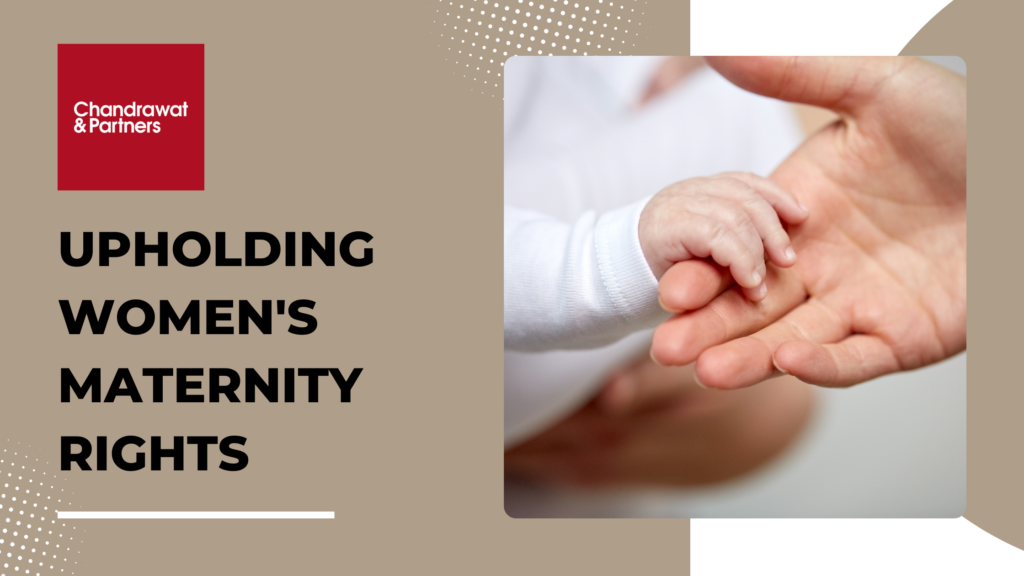Share :
Introduction
In a transformative legal pronouncement, the Himachal Pradesh High Court in the case The Secretary, Managing Committee of Loreto Convent Tara Hall School Vs Sharu Gupta and others has recently illuminated the imperative of safeguarding women’s rights during maternity. This article delves into the intricate details of the case involving Sharu Gupta, an Assistant Teacher, unravelling the court’s profound observations. It underscores not only the judicial scrutiny applied to the specific circumstances but also the broader societal obligation to provide unequivocal support to pregnant women while concurrently reinforcing the implementation of pertinent legislative provisions.
THE CASE OF SHARU GUPTA
The contextual foundation of Sharu Gupta’s case is pivotal for grasping the nuanced intricacies that influenced the court’s final ruling. The termination of Sharu Gupta during her pregnancy, ostensibly justified by claims of unsatisfactory performance, unravels against a layered backdrop where the motives of the school management undergo thorough scrutiny. The alleged strategic termination, seemingly orchestrated to sidestep the obligation of providing maternity benefits, initiates a meticulous and detailed legal examination. This multifaceted backdrop not only serves as the crux of the case but also underscores the broader implications that weigh heavily in the court’s deliberations. The complex interplay of employment dynamics, maternal rights, and legal obligations forms the intricate tapestry upon which the court must navigate to deliver a just and equitable verdict.
COURT’S EXACTING SCRUTINY OF SCHOOL’S CLAIMS
Justice Vivek Singh Thakur’s assiduous scrutiny of the evidentiary records assumes centrality in this segment. The court discerningly dissects the claims put forth by the school management, specifically underscoring the incongruity stemming from their antecedent endorsement of Sharu Gupta’s leave requests during the initial phases of her pregnancy. This rigorous scrutiny accentuates the incongruence inherent in the petitioner’s contentions, thereby fortifying Sharu Gupta’s legal standing in the proceedings.
NAVIGATING THE LEGAL LANDSCAPE: THE MATERNITY BENEFIT ACT, 1961
In unravelling the legal complexities surrounding maternity rights, a detailed exploration of the Maternity Benefit Act, 1961, becomes indispensable. This section meticulously dissects the provisions of Section 6(1) and 6(2) and elucidates the court’s observations regarding the employer’s obligation to facilitate maternity benefits and the employee’s rights in notifying pregnancy. The nuanced understanding of these legal intricacies becomes pivotal in appreciating the court’s verdict.
CONSTITUTIONAL DIRECTIVES AND INTERNATIONAL COVENANTS
Beyond the immediate legal framework, Justice Thakur’s invocation of constitutional directives and international covenants emerges as a defining aspect of the court’s stance. This segment expounds on the court’s emphasis on the natural right of women to motherhood and the concomitant duty to safeguard this fundamental right. By grounding its decision in constitutional principles and international obligations, the court establishes a robust foundation for the strict enforcement of the Maternity Benefit Act.
DECISIVE VERDICT
The culmination of the legal proceedings results in the court’s decisive rejection of the school’s appeal and the affirmation of the lower authority’s orders. However, the court goes a step further by awarding an additional compensation of Rs.15 lakhs to Sharu Gupta, signalling an unwavering stance against any attempt to subvert maternity benefits. This segment dissects the court’s verdict, underlining its significance in setting a precedent for the protection of women’s maternity rights.
CONCLUSION
The denouement of the Himachal Pradesh High Court’s verdict in the case of Sharu Gupta marks a watershed moment in the realm of maternity rights jurisprudence. Beyond being a legal pronouncement, it is a resounding affirmation of the intrinsic value placed on the rights of women during maternity.
The court’s unwavering commitment to upholding these rights is not merely a legal formality but a broader societal acknowledgement of the sanctity of maternity. By meticulously dissecting the legal intricacies, debunking inconsistent claims, and grounding its decision in constitutional principles and international obligations, the court has set an exemplary standard for the protection of women’s maternity rights.
HOW WE CAN HELP?
In the aftermath of such a landmark ruling, our law firm stands as a pillar of support for individuals navigating the labyrinth of employment and maternity-related legal intricacies. Employers seeking guidance on compliance with maternity laws and employees facing unjust termination during pregnancy can benefit from our comprehensive legal services. Our experienced legal team, well-versed in the nuances of labour laws and women’s rights, offers a spectrum of assistance ranging from legal consultations to zealous representation in legal proceedings. At Chandrawat & Partners, we are not just legal practitioners; we are advocates for justice, prioritizing the well-being and rights of our clients in all matters related to employment and maternity rights.
For more information or queries, please email us at
enquiries@chandrawatpartners.com




